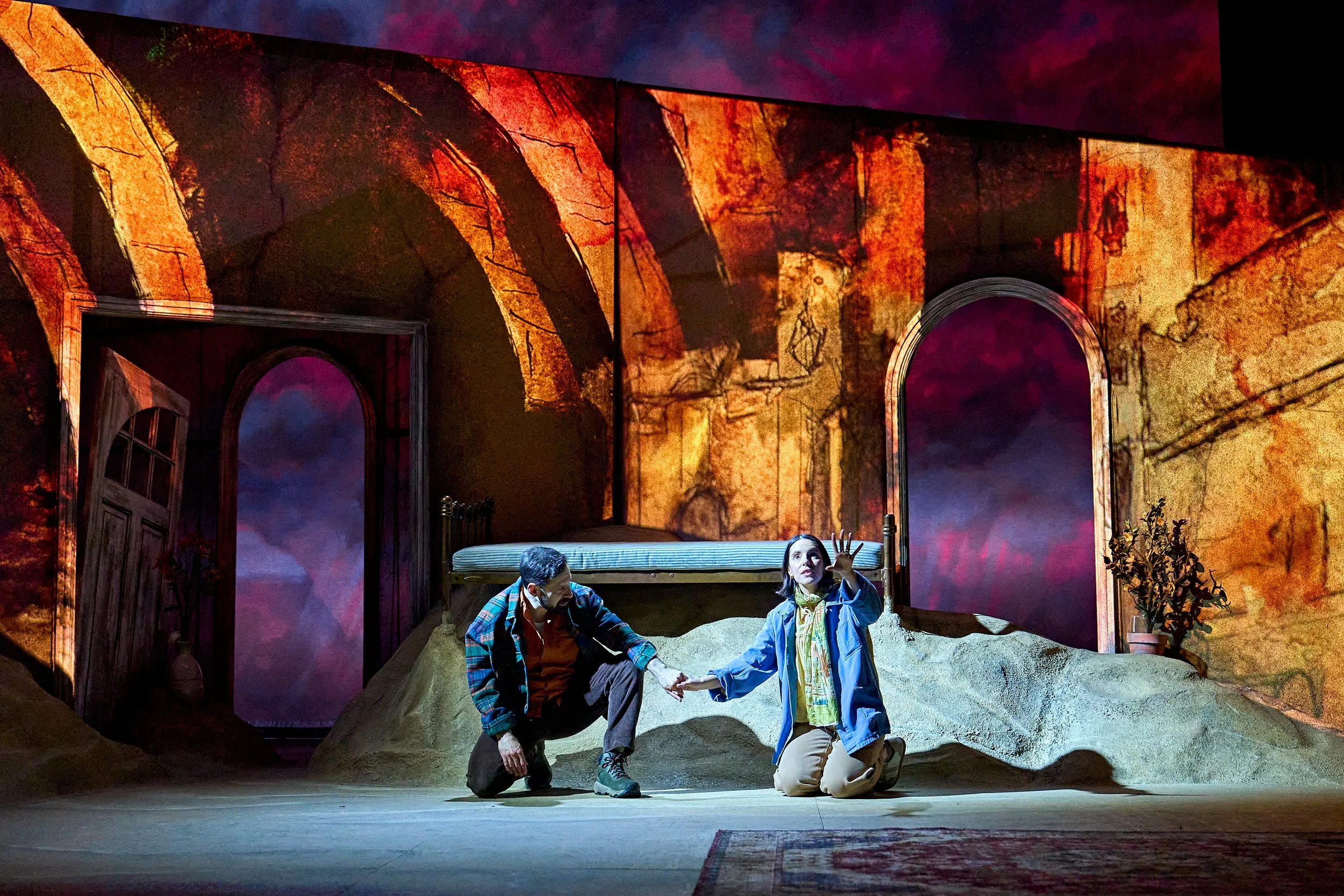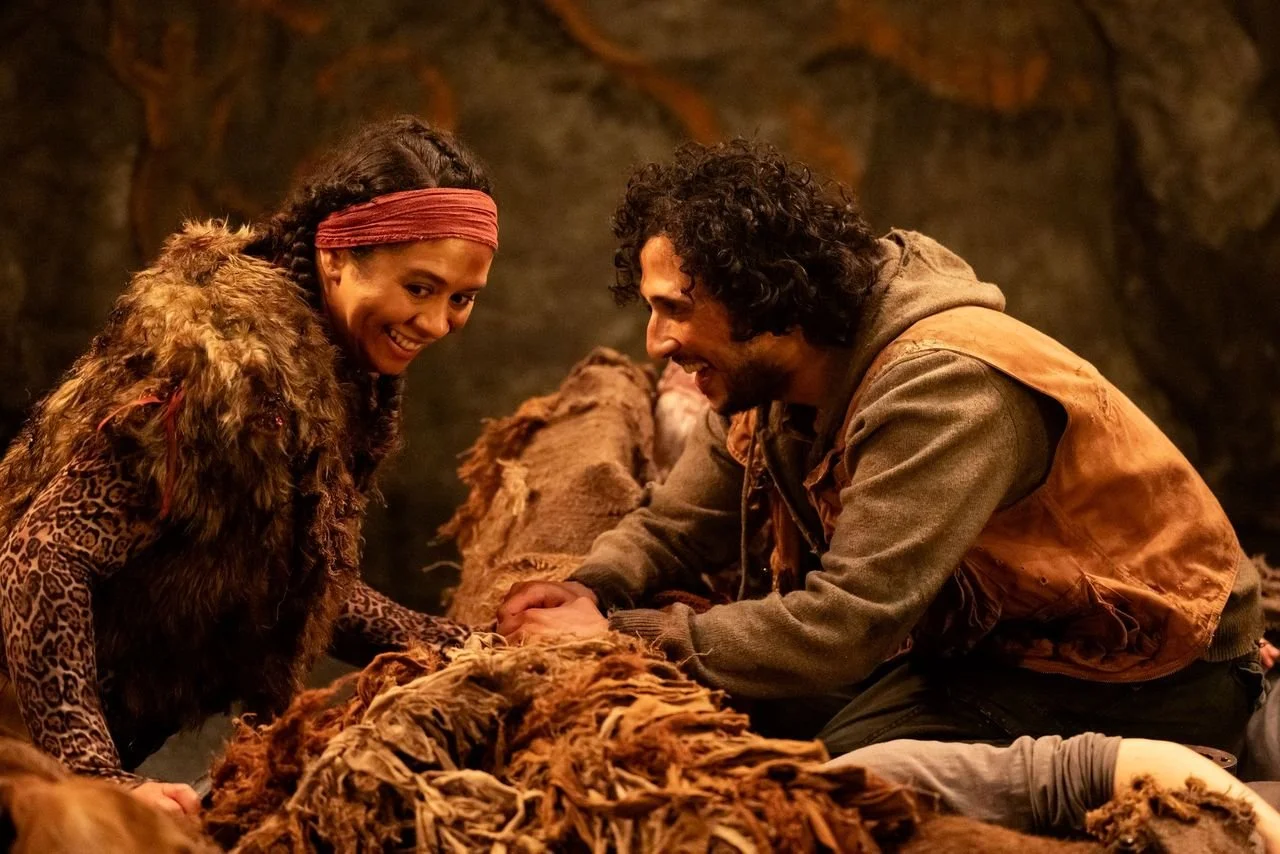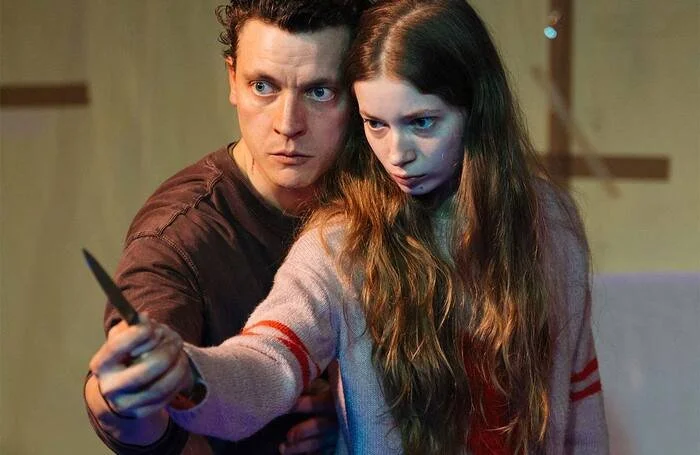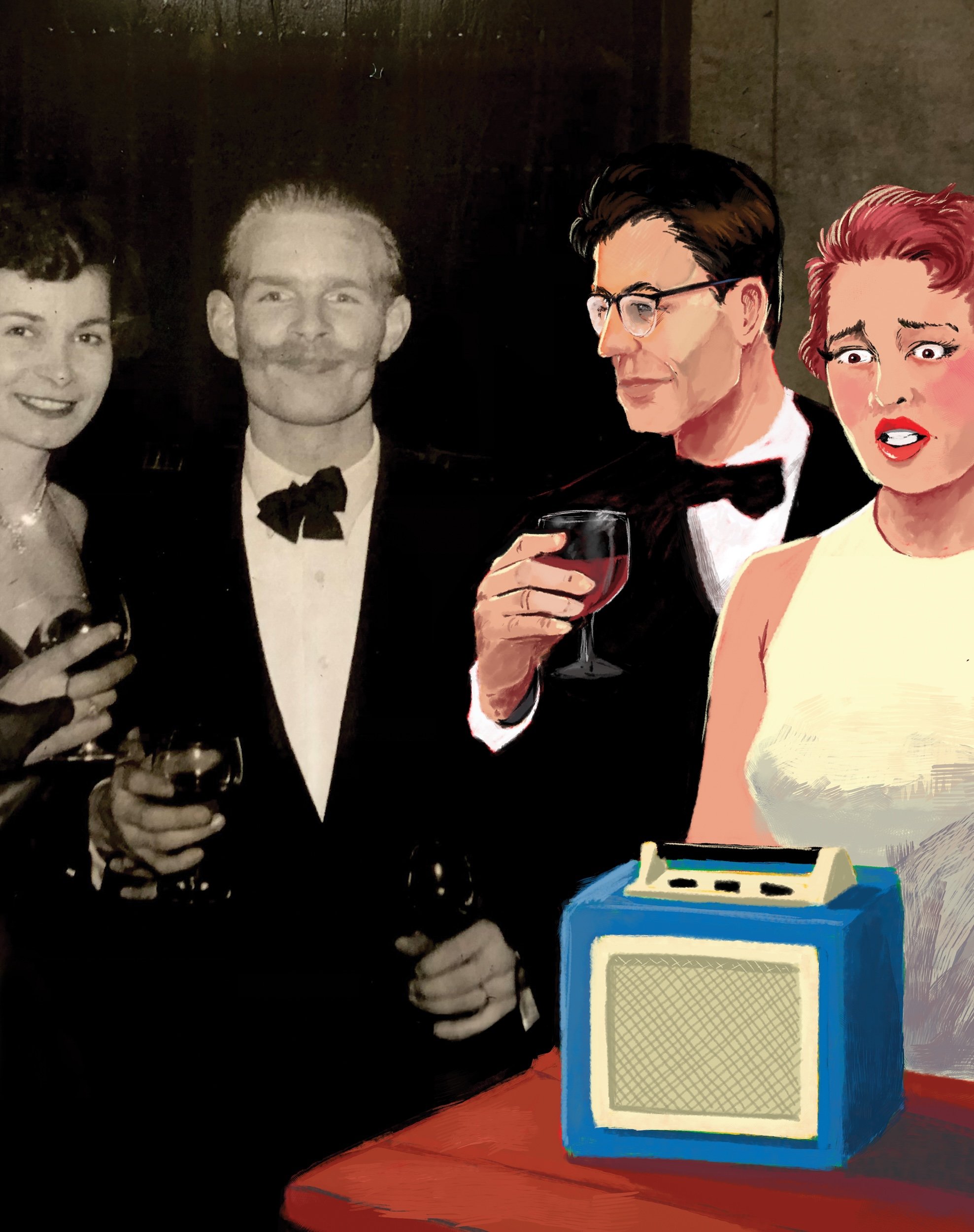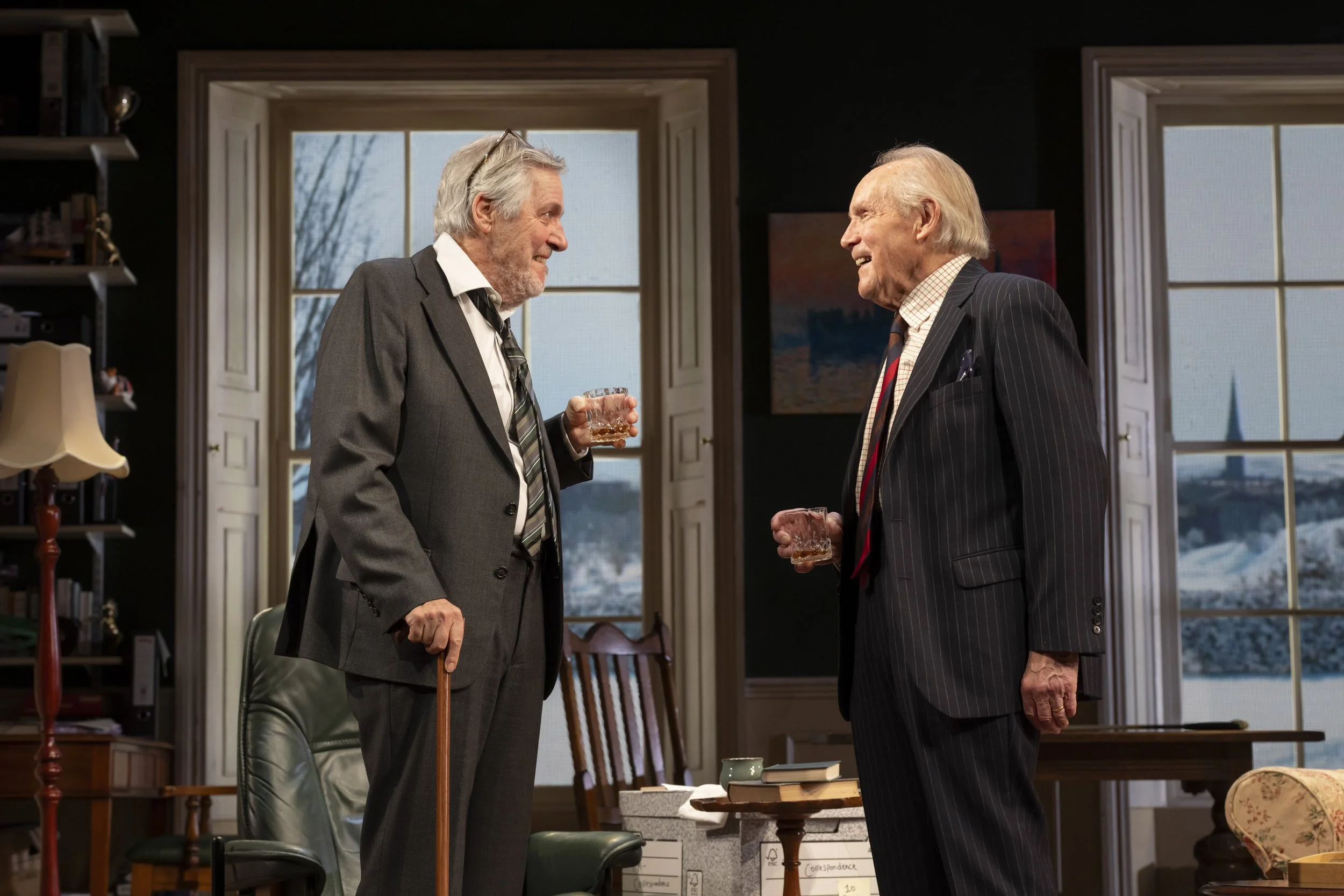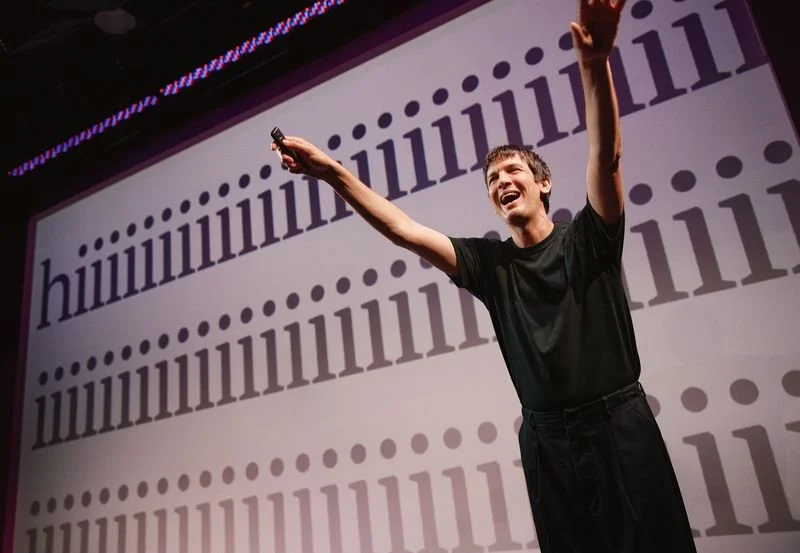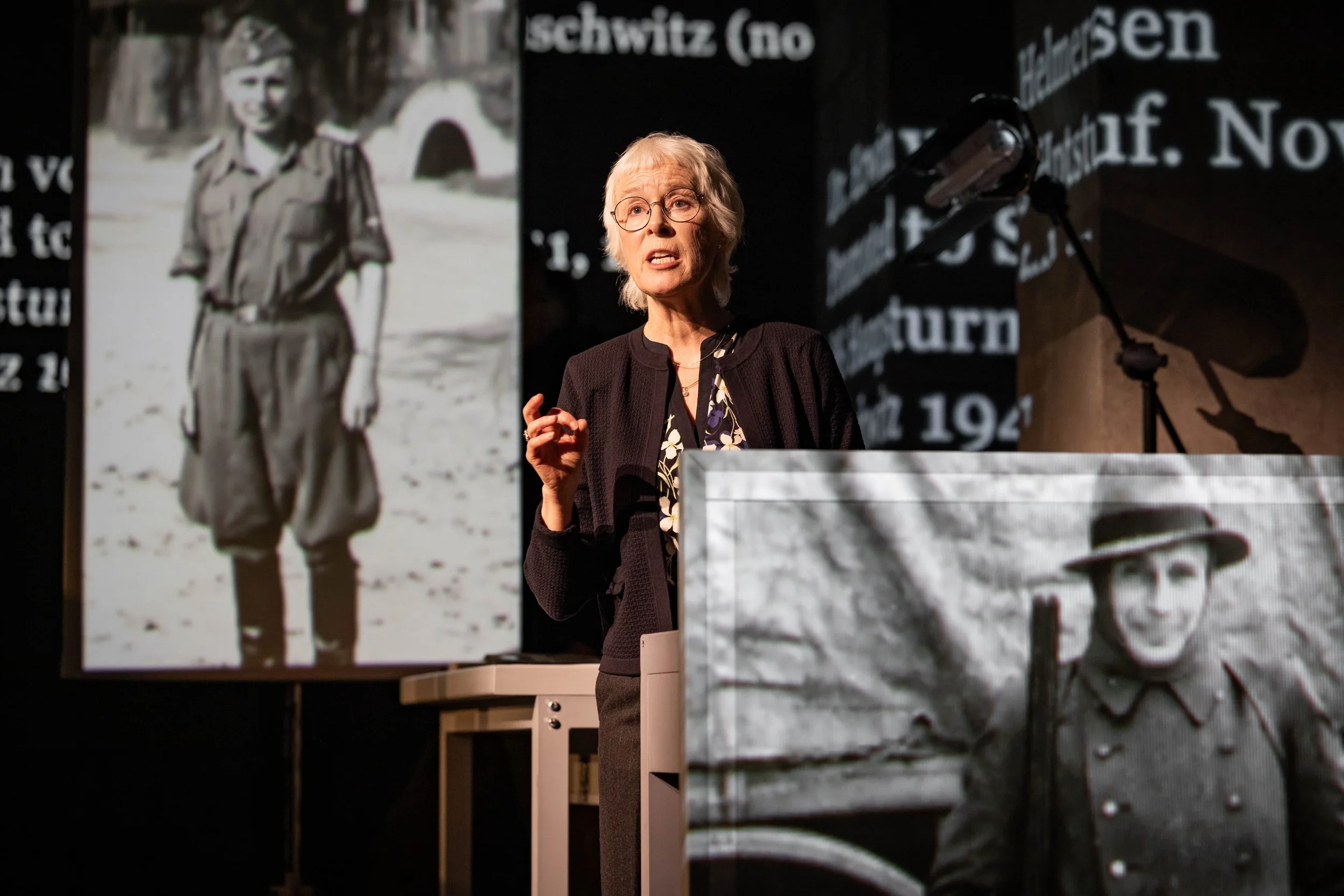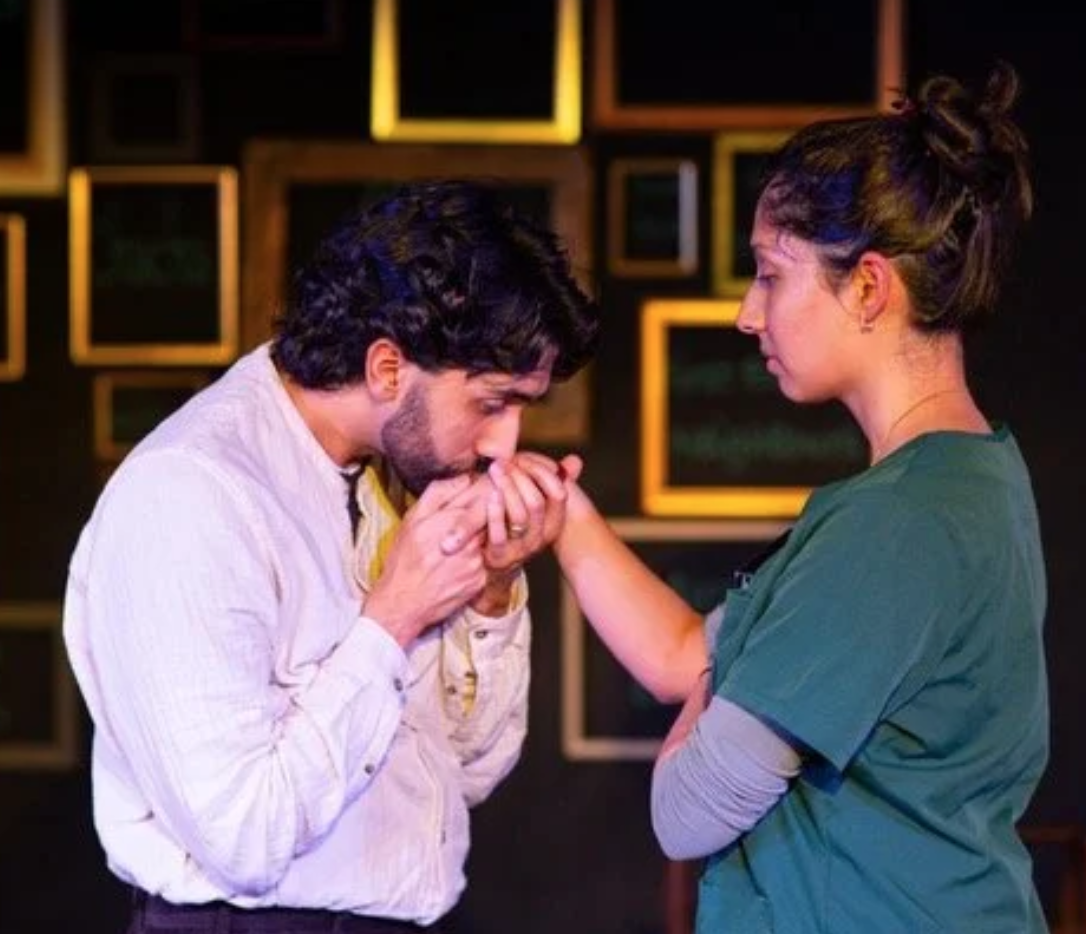Gigi & Dar, Arcola Theatre Review
Roman Asde and Lola Shalam in Gigi & Dar at Arcola Theatre. Photo by Ali Wright
Reviewed by Danai for Theatre and Tonic
Disclaimer: Gifted tickets in exchange for an honest review
Two young soldiers stand at a roadblock. Gunfire occasionally echoes in the distance, but it doesn’t faze them. They have more pressing concerns: relationships, sex, dreams of life after the army, and the endless struggle to make time pass while on watch. A jar of Nutella becomes their shared obsession. Gigi and Dar, played by Tanvi Virmani and Lola Shalam, introduce themselves directly to the audience. What begins as a light-hearted, funny journey is soon interrupted by a harsh reality check when the mood shifts. The carefree, joy-filled girls don't hesitate to abuse their power, going as far as to kill and cover up a secret—along with a body. And the audience? They remain, watching. Perhaps even lulled into believing their role is just to observe.
As the soldiers reassure themselves that nothing ever happens during their watch, they fantasize about their upcoming freedom. Soon, they’ll be done with their duties, ready to travel, wear their hair any way they want, and get married. But there’s an unspoken tension. Dar’s boyfriend has cheated on her—with Gigi, her supposed best friend and fellow soldier. Gigi confides this to the audience, seeking their understanding as she wrestles with the dilemma of whether to confess to Dar. Yet, beneath this personal drama lies a larger, more uncomfortable truth: we are watching soldiers, on duty, in a warzone. But surely, they can’t be that bad, right?
Then a car approaches. Inside are a pregnant woman, played by Chipo Chung, and her sixteen-year-old son, Sim (Roman Asde). They’re on their way to the hospital. Under normal circumstances, the soldiers would let them pass quickly, but Dar is teetering on the edge. She’s just received a voice message confirming her boyfriend’s infidelity, though she still doesn’t know who he cheated with. Desperate to release her anger, she lashes out in an inhumane display of humiliation and harassment. The room, once filled with laughter, now falls silent as the audience awkwardly watches the events unfold.
Kathryn Hunter directed this play with such a human-centered, delicate touch that every moment on stage aligns seamlessly with the work’s intent and goals. One of the most striking scenes is when Sim is humiliated by Dar who makes him undress and dance in front of her, Gigi and his mother. The pain of witnessing this event spread palpable discomfort throughout the room, as Dar sits beside us, reminding us that we, too, are passive observers. This created a unique theatrical moment—one in which we are forced to recognize that, like Dar, we do nothing. We allow it to happen. Same as later on we will witness a murder.
The political message embedded in the play is powerful in its broad strokes. While the setting and time are left unspecified, which could be seen as controversial, this choice allows the play to resonate with any war story, across any place or era. That said, the creators are clearly aware that staging this play in the present moment inevitably draws connections to current global conflicts. To interpret this ambiguity as an attempt to avoid political discussion feels unfair. In fact, Josh Azouz’s decision not to limit the story to a specific conflict—such as Israel and Palestine —heightens the sense of detachment that people outside war zones often feel.
The conclusion left me with mixed feelings. The growing frustration as it becomes clear that Gigi and Dar will move on with their lives while a mother faces the brutal reality of her son's murder is striking. The final question—"and then what?"—effectively captures this harsh truth. Despite Gigi’s small moral shift in deciding to tell the mother and arrange for the body to be returned and buried, the boy remains dead. Armies will continue abusing their power. Gigis and Dars will keep covering up bodies and try to later forget by dancing on a beach. War and death will keep being normalized, as we passively watch. Yet, Sim’s voice, which opens the play and later interrupts the time linearity of the narrative, may have created the expectation of a conclusion. But by the end, the gun remains untouched, Sim’s voice disappears, and the power dynamics stay largely unchanged. While realistic, the unanswered questions remain: Did Dar’s predicted death occur? Did the army abandon them? Leaving the answers open to the audience is a choice, but it feels like an unfulfilled promise.
Josh Azouz has crafted a play that resonates deeply with the audience in remarkable ways. His collaboration with Kathryn Hunter was a triumph, resulting in a beautifully staged production. A play full of emotions that is not afraid of looking the audience in the eye, challenging them to confront the privileged detachment with which they often view tragedy. A piece that lingers long after you leave the theatre—a truly impactful theatrical experience.
At Arcola Theatre until 2 Nov 2024.
★★★★


